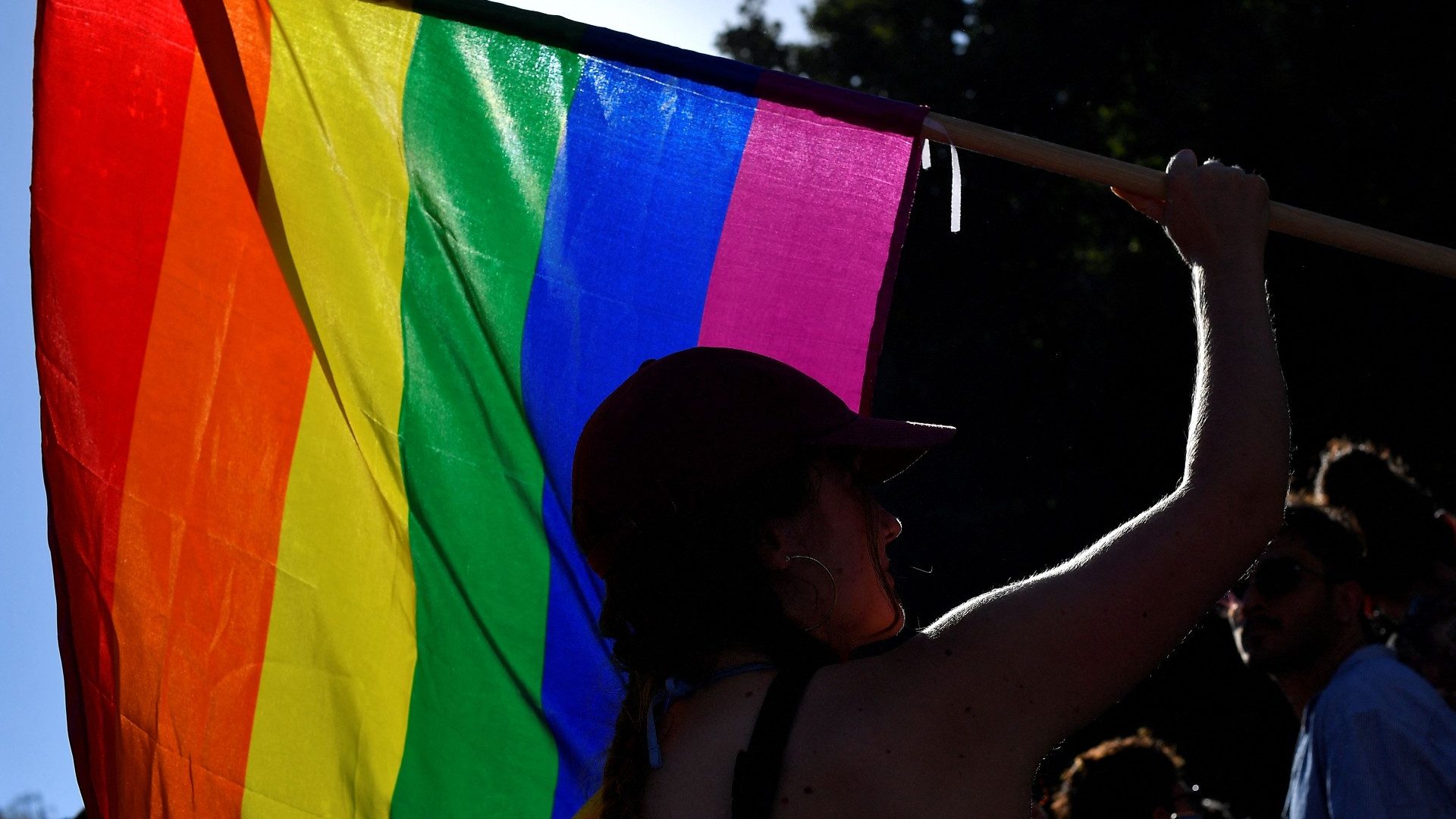The story of Mateo, a Mexican transgender psychologist 1:08
(CNN Spanish) --
June 27, 2022 marked a day of great relevance for the sexual and gender diversity movement in Spain.
The Council of Ministers approved on Monday the "Draft bill for the real and effective equality of trans people and for the guarantee of LGTBI rights", so it has now become a bill and goes to the Congress of Deputies for your discussion.
The Ministry of Equality brought to the Council of Ministers the preliminary draft of the so-called "trans LGTBI law" for the first time in June 2021. A year later and in a second round, the Council approved the now draft law with technical modifications regarding the original draft, but keeping intact the fundamental rights for people of the LGTBI + collective, according to the State Federation of Lesbians, Gais, Trans, Bisexuals, Intersexuals and more (FELGTBI +).
The "deadliest year on record" for transgender and non-binary people
"Today is a historic day for LGTBI people because the Council of Ministers finally approves the #TransLGTBI Law. A rule that we have improved in recent months and that will still be enriched when it reaches Congress," Ángela Rodríguez Pam, secretary, wrote on Twitter. State of Equality and against Gender Violence.
In this context, we present the most important information about the "trans LGTBI law" in Spain.
advertising
What is the "trans LGTBI law"?
As its full name indicates, this law seeks real and effective equality for trans people, as well as guaranteeing the rights of the LGTBI+ community.
The FELGTIB+ mentions that Spain has fallen in terms of diversity in recent years.
As an example, it mentions that currently, for a gender identity registration change, requirements such as "hormonation for two years, diagnosis of gender dysphoria and medical reports" are necessary.
The law aims to change this panorama through one of its most important points (and most controversial, as the local media outlet
El País
shows ), known as gender self-determination.
The most important points of the law
In addition to gender self-determination, there are other important points in the trans law, which were exposed by the General Directorate of Sexual Diversity and LGTBI Rights (which depends on the Ministry of Equality) and by Rodríguez Pam.
gender self-determination
If the law is approved, this point marks that reports or evidence will no longer be needed for a person to make an official registration change of their gender identity.
According to the General Directorate of Sexual Diversity and Rights, this can be done "through a system of double appearance, without medical or judicial protection."
If the person is 16 years old, Rodríguez Pam points out, they can appear and make the change on their own, with no one else involved;
if she is between 14 and 16, she will have to be assisted by her guardians;
and if she is between 12 and 14, it can be done via voluntary jurisdiction.
Likewise, the Directorate points out that this point guarantees the rights of foreigners to change documents issued in Spain if they cannot do so in their country.
Depathologization of trans people
With this point, it would be legally guaranteed that a trans person would never again be considered ill in Spain.
In addition, it is related to the previous point, since a medical diagnosis would never be requested again for the official change of gender identity.
Right to affiliation of sons and daughters of female couples
With the approved law, "couples of women are equated to heterosexual couples in terms of the right of filiation of their offspring", indicates the Directorate.
In other words, lesbian or bisexual women will no longer have to marry to have children with their partner.
"Our right to form a family is recognized just like heterosexual couples," explains Rodríguez Pam.
Ban on conversion therapies
Conversion therapies (that is, false processes that seek to change a person's sexual orientation) would be completely eradicated, regardless of the consent of the interested parties.
Said therapies "will be considered a very serious infraction in the new law, such as denying an LGTBI couple access to housing or disseminating discriminatory materials against LGTBI people in educational centers," Rodríguez Pam mentions.
Rights of intersex people
With the approved law, genital modification surgeries would be prohibited for intersex people up to the age of 12.
They could be carried out earlier, but only if they are absolutely necessary (for example, for health reasons).
LGTBI strategy and trans strategy
The Directorate mentions that this point seeks to establish "two four-year strategies for the promotion, development and coordination of LGTBI policies."
This will be done in coordination with the autonomous communities of Spain.
The strategies aim to address multiple discriminations against the community of diversity.
Education in diversity and social and labor insertion of trans people
If the project is approved, the law will guarantee that at the various educational levels there is content on sex-affective diversity and on family diversity.
This will not only be for students, but it would also be included in the access agendas for teachers.
It seeks to promote measures for the inclusion of trans people in the labor market, as well as promoting anti-discriminatory measures in the negotiation of collective contracts.
"Positive action measures are included that favor the inclusion of trans people in the labor market and trans minors will have the right to have their gender respected in the educational center," adds Rodríguez Pam.
Comprehensive health care for trans people
Health services will have a new dimension of inclusion and respect for diversity to offer completely comprehensive and quality care.
"Health care for trans people will be carried out in accordance with the principles of non-pathologisation, autonomy, codecision and informed consent, non-discrimination, comprehensive care, quality, specialisation, proximity and non-segregation", explains the Directorate.
How much are the fines for breaking the law?
The original draft had no changes in terms of fines for breaking the law.
The infractions are divided into minor, serious and very serious: the first could bring with them a fine of 200 to 2,000 euros;
the second, fines from 2,001 to 10,000 euros;
and the third, fines of 10,001 to 150,000 euros.
For more information on the characteristics of each of these violations, click here.
LGBT rightsdiversitytrans lawLGBTIQtrans people








